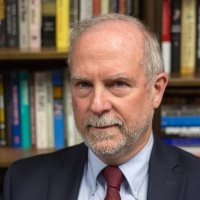Broken Lives: How Ordinary Germans Experienced the Twentieth Century
How could a cultured people like the Germans have fallen for Nazi propaganda and have collaborated in their crimes? And how were the defeated survivors able to recivilize themselves, become democrats and Western allies? The transatlantic historian Konrad H. Jarausch takes a fresh look at this puzzle, based on over 80 autobiographies of the Weimar children. He presents the partly shocking, partly touching stories of ordinary people struggling to have normal lives in an age of catastrophe.
Konrad H. Jarausch is the Lurcy Professor of European Civilization at the University of North Carolina and the past director of the Zentrum für Zeithistorische Forschung in Potsdam, Germany. Among the many leaves and fellowships he is a double alumnus of the Wilson Center. His about fifty monographs and edited volumes cover German and European history, mostly during the 20th century. Some of his recent books are Reluctant Accomplice: A Wehrmacht Soldier's Letters from the Eastern Front (Princeton 2007), Out of Ashes: A New History of Europe in the Twentieth Century (Princeton, 2015) and Broken Lives: How Ordinary Germans Experienced the Twentieth Century (Princeton, 2018). He was a Wilson Center Distinguished Scholar in 2013.
The Washington History Seminar is co-chaired by Eric Arnesen (George Washington University) and Christian Ostermann (Woodrow Wilson Center) and is sponsored jointly by the National History Center of the American Historical Association and the Wilson Center's History and Public Policy Program. It meets weekly during the academic year. The seminar thanks the Lepage Center for History in the Public Interest and the George Washington University History Department for their support.
Speaker

Lurcy Professor of European Civilization, University of North Carolina
Moderators


Professor of History, The George Washington University. Director, National History Center of the American Historical Association.
Hosted By

History and Public Policy Program
A leader in making key foreign policy records accessible and fostering informed scholarship, analysis, and discussion on international affairs, past and present. Read more
